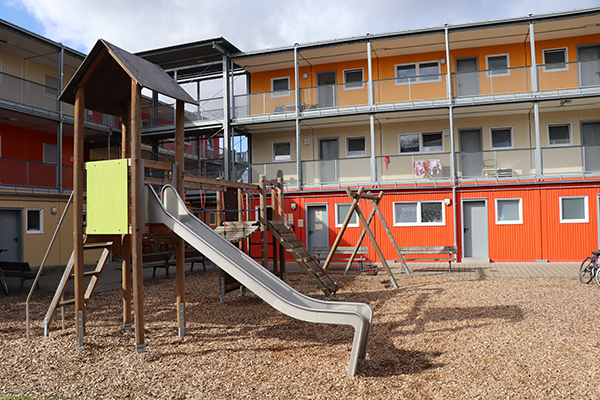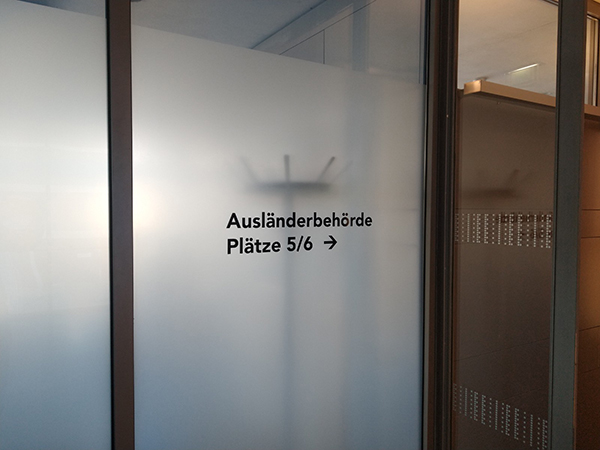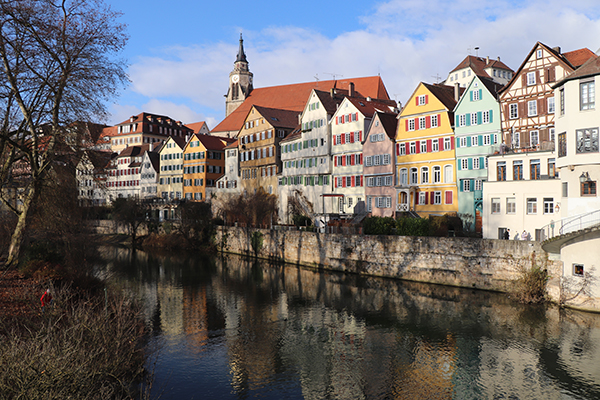A flyer by the women’s rights organisation TERRE DES FEMMES e.V. and the aid organisation Arbeiter-Samariter-Bund Deutschland (Workers’ Samaritan Federation of Germany) is addressed in Ukrainian, Russian and German to women, children and young people who have fled Russia’s war against Ukraine. It contains safety advice on arriving in Germany, carpooling and accommodation. Among other things, the organisations recommend that you should never hand over your passport, mobile phone or cash and hide your valuables in different places. Never go with a person who does not seem trustworthy. Important phone numbers and information should not only be kept in your… Read More
Category: 992-INTEGREAT
New hope for those who have been tolerated for a residence permit
The federal government has set out a law that makes it easier for those with leniency to remain permanently in Germany. The decision “Chancen-Aufenthaltsrecht” affects people living in Germany for at least five years who have a “Duldung”, a temporary suspension of deportation. The prerequisite is that they did not commit a crime or have not given false information about themselves. In addition, they have to prove during a one-year “trial period” that they can live independently with the money they have earned and speak good German. It is estimated that approximately 130,000 people are subject to this regulation. Recently,… Read More
9-euro ticket instead of free ticket
If Ukrainian refugees want to travel inexpensively on buses and trains, they need a 9-euro ticket to do so. The rule that they can use local trains for free has already been lifted since the beginning of June, the Federal Ministry of the Interior has announced. The 9-euro ticket is valid for one month on local trains and is still available for the months of July and August. Long-distance trains cannot be used with it. Tickets are available at ticket counters of the railroad or online. https://www.bahn.de/angebot/regio/9-euro-ticket tun22071801 www.tuenews.de Schienennahverkehr rund um Tübingen. Foto: tünews INTERNATIONAL / Martin Klaus.
A Car bomb, war, and the museum of Aleppo
By Youssef Kanjou and Wolfgang Sannwald Youssef Kanjou who directed the Archaeological Museum in Aleppo, Syria, from 2009 to 2013 describes his experience working in the museum as “one of the most beautiful professions”. Russia’s war against Ukraine reminds him of how his dream job became “a terrible nightmare”. That was during the Assad regime’s war against its civilian population, which lasted from 2012 to 2016 in Aleppo. The horrible conflict came in the form of a bomb near the museum. He was at home, just about five miles away from the bomb. There, he heard the car bomb explode… Read More
Contact point for refugees with disabilities and people in need of care
People with disabilities and those in need of care who have fled Ukraine and need help can obtain information from a federal contact point. This federal contact point operates a telephone hotline and a website. Its aim is to quickly arrange suitable offers of help, if possible even before arrival. The German Red Cross operates this contact point on behalf of the Federal Ministry of Labour and Social Affairs and the Federal Ministry of Health. This was announced by the ministries in a press release dated 4 May 2022. The contact point can be reached from Monday to Friday at:… Read More
Psychological support for refugees from Ukraine
Those who have fled Russia’s war against Ukraine may suffer from panic attacks, despair, apathy, fear, powerlessness or restlessness. People who have lost loved ones, for example, or who find it difficult to cope in a new environment can also seek professional psychological support. Since 1 June 2022, refugees from Ukraine in need of assistance have had access to statutory health insurance. Their services also include psychological counselling and therapy. Anyone who wants to make use of these services must present the electronic health card of their health insurance company. If you are looking for contact addresses in your region,… Read More
Refugees do not enter Germany illegally
By Michael Seifert In statements to the media in recent weeks, interior ministers of various federal states and also the former federal interior minister have repeatedly spoken of illegal entries of refugees into Germany. These increasing “unauthorised” entries are worrying and must be prevented. However, these politicians do not talk about the fact that people have a good reason to come to Germany when they seek asylum. tünews INTERNATIONAL asked the Tübingen lawyer Holger Rothbauer what the legal situation is. He is an expert in foreigner and refugee law. “If a person from a third country crosses the border into… Read More
Changing jobs–this is how to do it without hassle
By Brigitte Gisel Workers are in demand in many sectors. So, the chances of finding a new job that pays better and offers new perspectives are quite good. But if you want to change employers, you have to follow a few rules. You can’t quit from one day to the next. How quickly you can leave your old job to start somewhere else is regulated by labour law. The notice periods that apply to employees are usually stated in the employment contract or the applicable collective agreement. The usual notice period is four weeks to the 15th of the month… Read More
Statistics: Syrians make up the majority of foreign doctors in Germany
“The medical profession in Germany is becoming more colourful”. According to the current statistics of the German Medical Association, there are currently more than 57,000 foreign doctors working in Germany. In other words, more than 10 percent of the 548,302 doctors in Germany come from abroad. For the third year in a row, Syrian doctors took first place in the number of foreign doctors in Germany. In 2021, the number of Syrian doctors working in Germany reached 5404 while in 2020, it was 5242. Around 4,314 of them work in German hospitals. However, in second place were Romanian doctors (4,721),… Read More
More and More are Becoming Germans: People from Syria lead the Way in Naturalizations
Last year, almost three times as many Syrians were naturalized in Germany as in the previous year. 19,100 of them received a German passport. According to data from the Federal Statistical Office, there were around 20 percent more naturalizations in 2021 than the year before, although in 2020 the numbers had fallen by 15 percent. In total, around 131,600 foreigners received a German passport last year. In Tübingen, 518 people naturalized last year—111 more than the year before. Furthermore, Syrians made up the largest group to naturalize with 88 persons, while in the previous year there were only 29 persons… Read More










